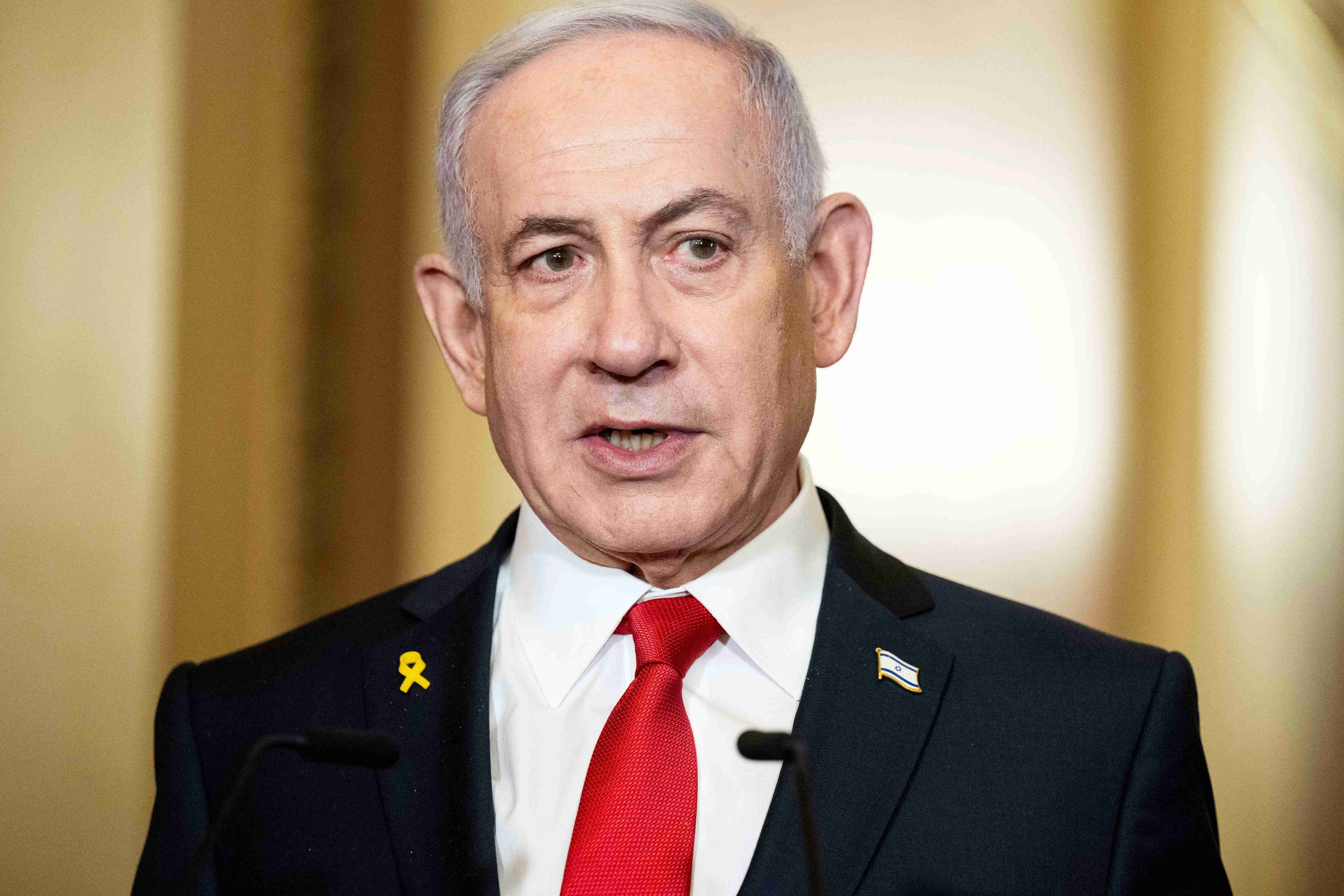From AIPAC to Netanyahu, 2020 candidates face tough questions over Israel
Secretary of State Mike Pompeo was in Jerusalem this week for an initially unremarkable visit, if not for the timing.
In the final weeks of a fierce re-election fight, Pompeo's visit appeared to boost Israeli Prime Minister Benjamin Netanyahu. A close ally of President Trump, Netanyahu has campaigned on his close relationship with the American leader even before Thursday's historic shift in U.S. policy over the Golan Heights.
But it is that close relationship between the two leaders that could prove divisive for the approaching 2020 election.
Why won't 2020 candidates be at AIPAC?
After intra-party fury over Michigan Democratic Congresswoman Ilhan Omar's criticism of pro-Israel lobbyists, widely condemned as anti-Semitic, MoveOn.org called on 2020 hopefuls to boycott the influential AIPAC (American Israel Public Affairs Committee) conference in Washington, D.C., this weekend.
Citing a survey of its own members, MoveOn denounced AIPAC for "anti-Muslim and anti-Arab rhetoric" and undermining President Obama's Iran nuclear deal.
For years, White House hopefuls have flocked to AIPAC's policy conferences in the nation's capital to speak. But none of the 2020 candidates are scheduled to speak there this year.
AIPAC told CBS News that for the past decade they've only had candidates speak in "actual election years," adding that both Democratic House Speaker Nancy Pelosi and Senate Minority Leader Chuck Schumer were scheduled to deliver remarks.
Do 2020 candidates support the BDS movement?
No candidate on the 2020 trail has openly endorsed the movement to boycott, divest from, and sanction Israel over its treatment of Palestinians.
But that did not discourage Senate Republicans from pushing the "Combating BDS Act" this past January, in a bid to splinter Democratic senators.
Of the Democratic senators now also mounting a presidential campaign, only Sen. Amy Klobuchar, D-Minn., voted for the measure.
Others qualified their opposition over free speech concerns.
New Jersey Democratic Sen. Cory Booker, in a statement sent to the website Jewish Insider, pointed out he had a "strong and lengthy record of opposing efforts to boycott Israel, as evidenced by my cosponsorship of S. 720, the Israel Anti-Boycott Act."
What do 2020 candidates think of Benjamin Netanyahu?
Most of the presidential candidates have offered little praise for the Israeli prime minister, who has nurtured an alliance with Republicans.
Evangelical leaders, who see Israel as central to their faith, have praised Netanyahu's conservative policies.
He is close to the Trump family and backed Mitt Romney, President Obama's opponent in 2012.
Elizabeth Warren blasted the Israeli leader on Twitter, after news broke of potential corruption charges.
And on the campaign trail, former Texas Congressman Beto O'Rourke reportedly accused him of having "openly sided with racists."
But broadly, Democrats insist that they are united in their support for Israel - even as they have soured on the nation's leader.
"We must say loudly and clearly that to oppose the reactionary policies of Prime Minister Netanyahu does not make us anti-Israel," Sen. Bernie Sanders, I-Vt., said in remarks last year.



